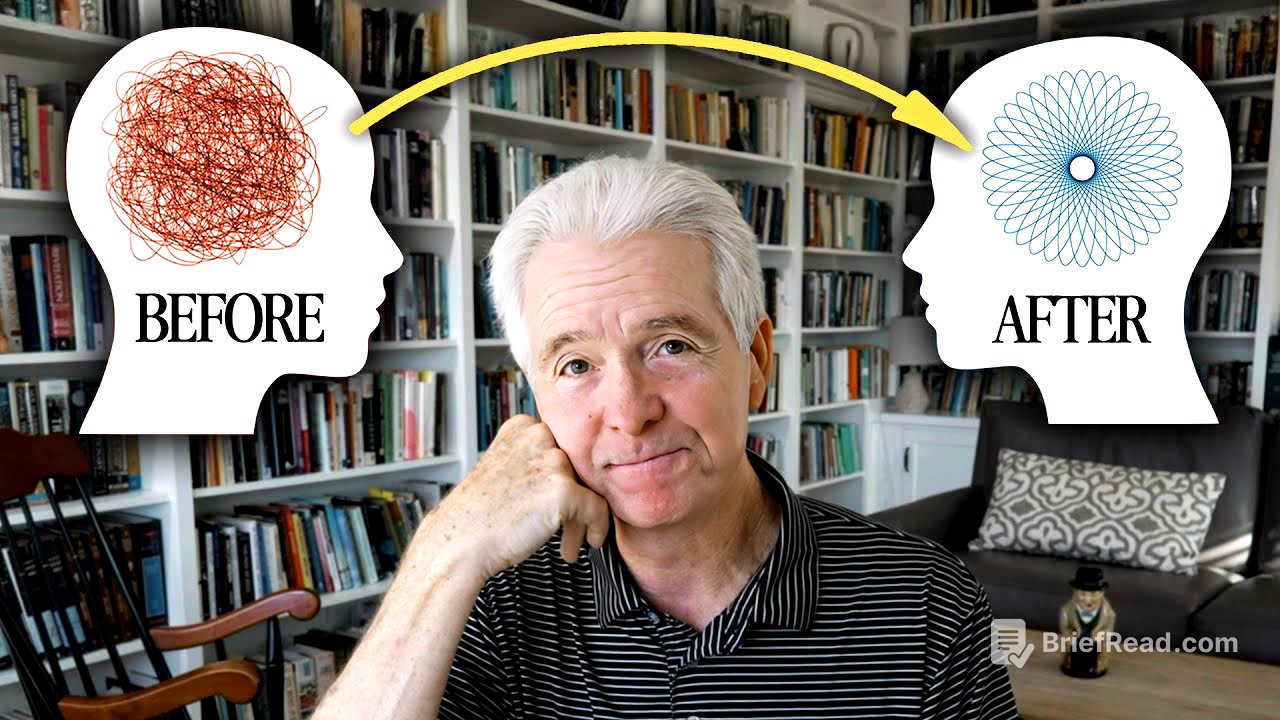TLDR;
This video explores the importance of directing our thoughts towards what is true, noble, right, pure, lovely, and admirable, as instructed by Paul in Philippians 4:8. It encourages viewers to become aware of their thought patterns, intentionally focusing on positive and virtuous concepts rather than letting their minds dwell on negativity or societal pressures. The video also touches on the contrast between judgmental attitudes often found in media and the compassion and humility encouraged by classic literature.
- The mind is a powerful realm that shapes our reality.
- Being aware of our thoughts is the first step towards intentional thinking.
- Focusing on truth, nobility, and other virtues can transform our lives.
Introduction: The Power of the Mind [0:01]
The speaker introduces Paul's instruction to the church at Philippi, emphasising the importance of our thoughts and their impact on our lives. Quoting John Milton, he highlights that the mind can transform any situation, turning "hell into heaven" or vice versa. He contrasts the modern tendency to track our physical location with the lack of awareness of our mental state, questioning whether we know if our minds are consumed by negative emotions like envy or greed.
Philippians 4:8: A Command for Flourishing [1:47]
The speaker focuses on Philippians 4:8, where Paul urges us to think about what is true, noble, right, pure, lovely, and admirable. This command is presented as the key to a flourishing life, free from worry and filled with joy. Problems often stem from the nature of our thoughts, and true transformation comes from renewing our minds rather than merely modifying our behaviour. The alternative to this is described in Romans 1, where people's thinking became futile due to a lack of gratitude and praise.
The Influence of Media and Literature on Our Thinking [3:55]
The speaker references Alain de Botton's "Status Anxiety," discussing how literature, particularly Greek tragedies, can foster compassion and humility by allowing us to recognise the potential for both good and bad within ourselves. This is contrasted with tabloid headlines that promote judgmentalism and superiority by portraying others as strange or failures. The speaker illustrates this with examples of how tragic stories are sensationalised to encourage contempt rather than understanding.
Becoming Aware of Your Mind [5:50]
The speaker encourages listeners to become aware of their thoughts, likening it to a scientist observing nature. He suggests taking a moment to watch the mind without judgment, simply noticing the thoughts that arise. The goal is to transition from being unaware of our often toxic thoughts to intentionally directing our minds towards positive and virtuous concepts.
Exploring Paul's Virtues: Truth, Honour, and Righteousness [7:35]
The speaker explores the virtues Paul lists in Philippians 4:8. Truth is presented as a valuable gift, contrasting with the distortions and hype that can pervade communication. Honour is exemplified by stories of sacrifice, such as in "Saving Private Ryan." Righteousness is defined as treating all things according to their worth, including people and creation.
Purity, Loveliness, and Admiration [9:21]
The speaker continues to explain Paul's virtues, defining purity as encompassing motives and actions, not just bodily chastity, referencing the story of Le Chambon, a village that selflessly helped Jewish people during World War II. Loveliness is presented as the opposite of disgust, creating a sense of elevation. Admiration is found in people who exhibit virtue and joy in their actions, even in mundane jobs.
Invitation to Intentional Thinking [11:48]
The speaker concludes by reiterating the invitation to avoid letting the mind go on default and to intentionally focus on what is true, noble, right, pure, lovely, and admirable. He encourages viewers to find these qualities in creation, people, scripture, and art, and to actively choose to think about them.
Become New Resources and Closing [12:31]
The speaker promotes the "Become New" spiritual formation newsletter and invites viewers to join the beta test group. He also offers prayer for those in need, emphasising that prayer is central to the ministry. Contact information is provided in the show notes.









